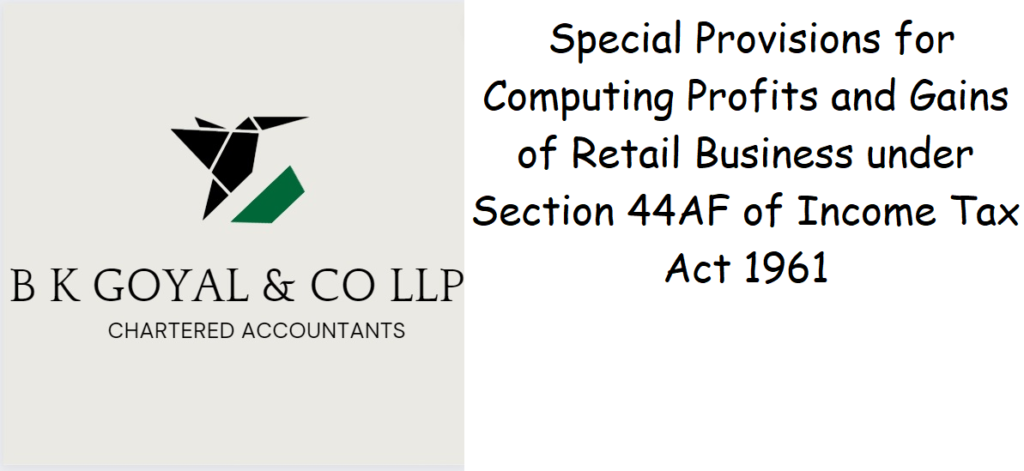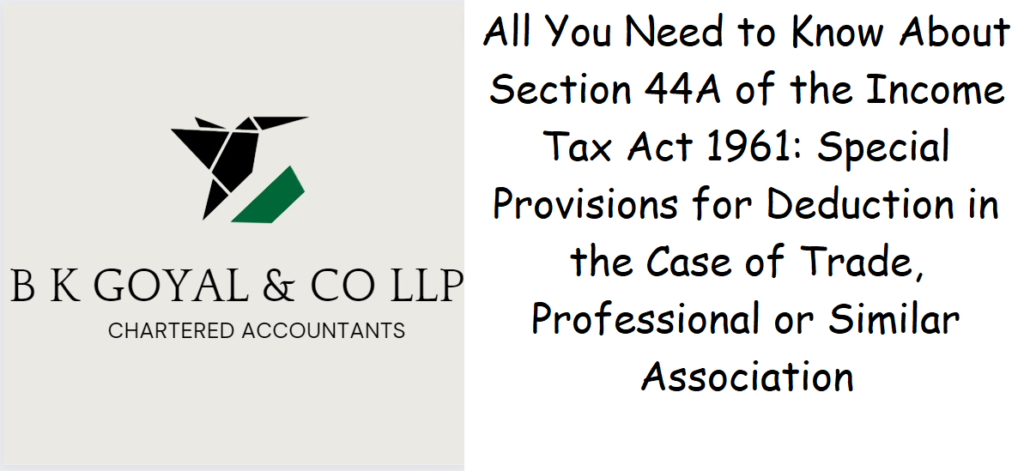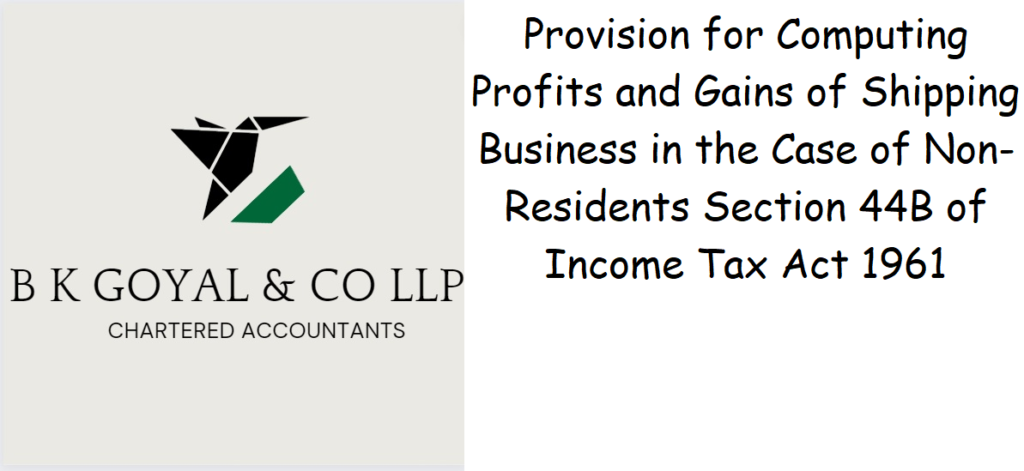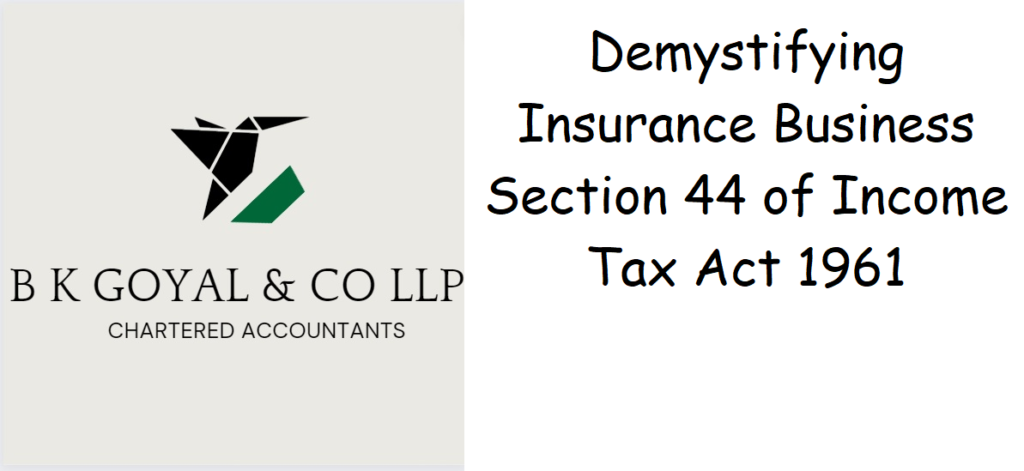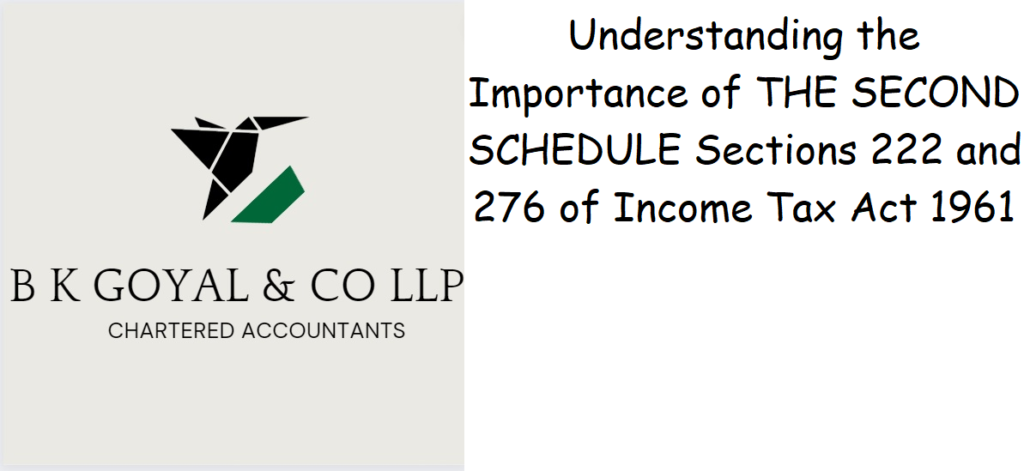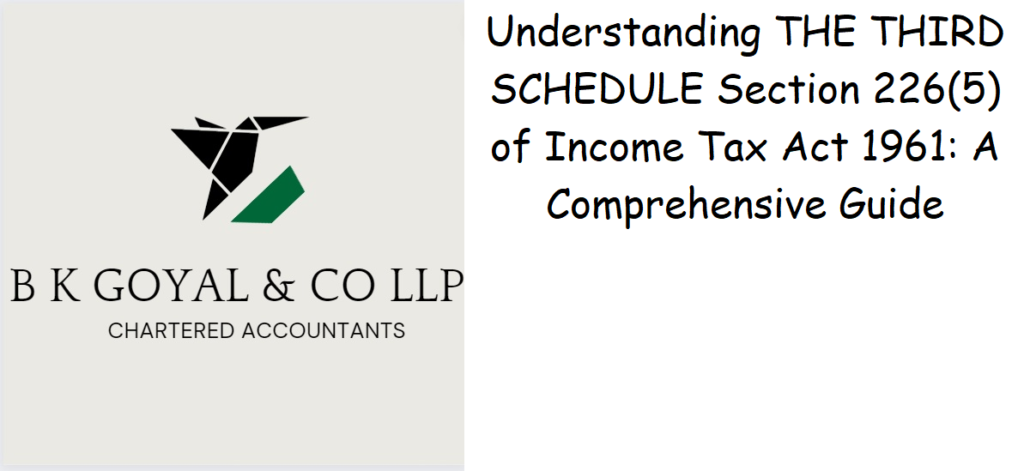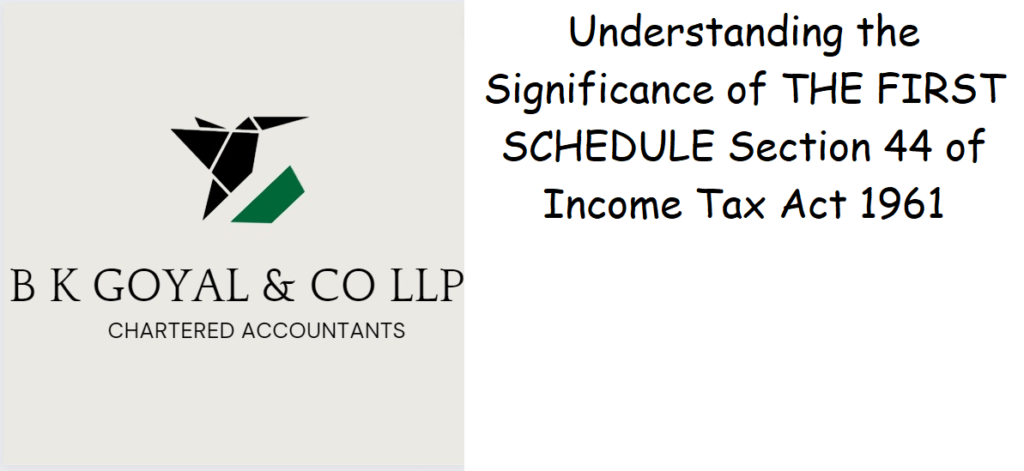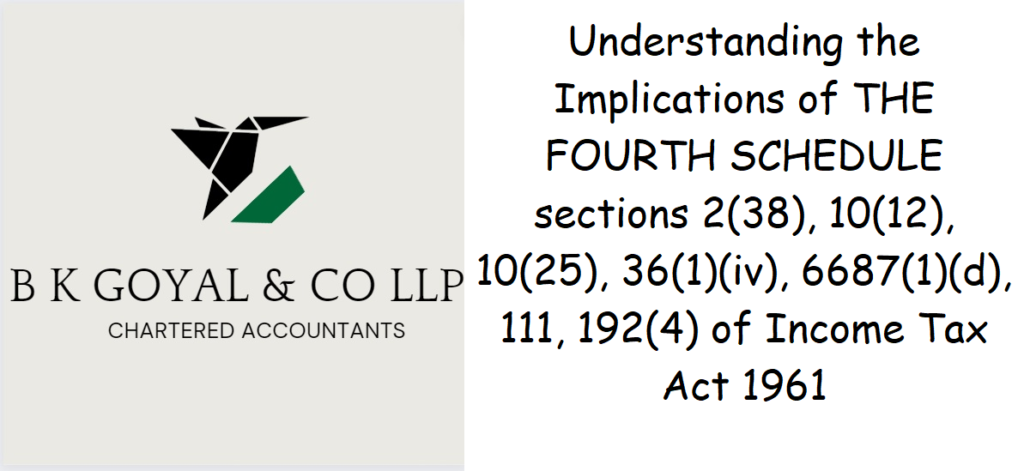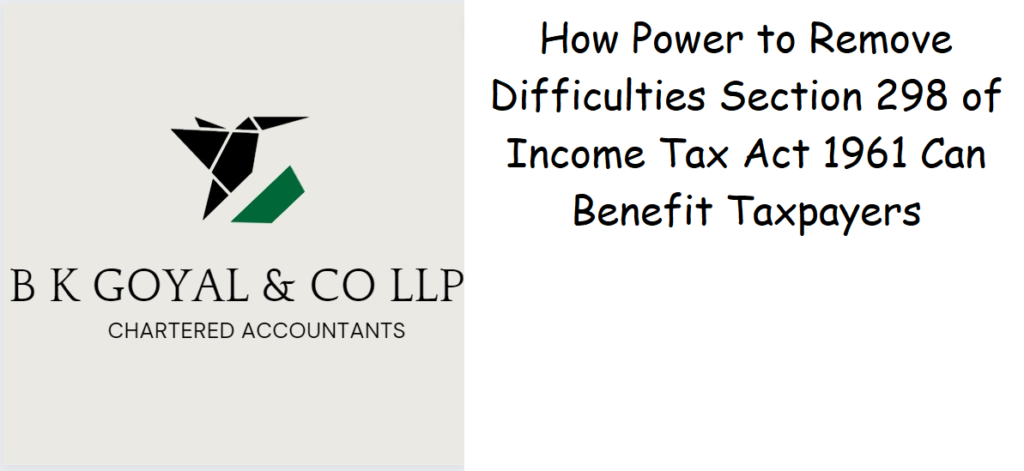Special Provisions for Computing Profits and Gains of Retail Business under Section 44AF of Income Tax Act 1961
Introduction Are you looking to understand about A Guide to Understanding Special Provisions for Computing Profits and Gains of Retail Business under Section 44AF of Income Tax Act 1961 ? This detailed article will tell you all about A Guide to Understanding Special Provisions for Computing Profits and Gains of Retail Business under Section 44AF of Income Tax Act 1961. Hi, my name is Shruti Goyal, I have been working in the field of Income Tax since 2011. I have a vast experience of filing income tax returns, accounting, tax advisory, tax consultancy, income tax provisions and tax planning. The Indian Income Tax Act, 1961, is a comprehensive legislation that governs the taxation of various sources of income in India. One of the key provisions of the Income Tax Act is the Special Provisions for Computing Profits and Gains of Retail Business under Section 44AF. This provision is applicable to small retail businesses with a turnover of up to Rs. 2 crores. In this blog, we will explore the Special Provisions for Computing Profits and Gains of Retail Business under Section 44AF of the Income Tax Act, 1961. We will look at the eligibility criteria, provisions, and frequently asked questions related to this section. Eligibility Criteria for Section 44AF To be eligible for the Special Provisions for Computing Profits and Gains of Retail Business under Section 44AF, a taxpayer must fulfill the following criteria: The taxpayer must be a resident individual, Hindu Undivided Family (HUF), or partnership firm. The taxpayer must be engaged in the business of retail sale of goods. The taxpayer’s total turnover for the previous year must not exceed Rs. 2 crores. If a taxpayer fulfills all the above criteria, they can avail the benefits of Section 44AF. Provisions of Section 44AF Section 44AF provides for a simplified method of calculating taxable income for small retail businesses. Under this section, taxpayers are not required to maintain detailed books of accounts. Instead, they are required to declare a presumptive income based on a percentage of their total turnover. The presumptive income for retail businesses is fixed at 6% of the total turnover for the previous year. However, in case the payment received by the taxpayer is made through digital modes of payment, the presumptive income is reduced to 5% of the total turnover. It is important to note that taxpayers who opt for the presumptive taxation scheme under Section 44AF cannot claim any deductions or expenses against their presumptive income. However, they are still allowed to claim deductions for any investments made under Section 80C to 80U of the Income Tax Act. FAQs on Section 44AF Q. What is the meaning of presumptive taxation? Presumptive taxation is a method of calculating taxable income based on a percentage of the total turnover of a business. This method is used to simplify the tax compliance process for small businesses. Q. Can a taxpayer opt-out of the presumptive taxation scheme under Section 44AF? Yes, a taxpayer can opt-out of the presumptive taxation scheme under Section 44AF. However, once a taxpayer opts out of this scheme, they will be required to maintain detailed books of accounts and get them audited as per the provisions of the Income Tax Act. Q. Is Section 44AF applicable to all types of retail businesses? No, Section 44AF is applicable only to small retail businesses with a turnover of up to Rs. 2 crores. Retail businesses with a turnover exceeding Rs. 2 crores will have to maintain detailed books of accounts and get them audited as per the provisions of the Income Tax Act. Q. Can a taxpayer claim deductions for investments made under Section 80C to 80U of the Income Tax Act? Yes, taxpayers who opt for the presumptive taxation scheme under Section 44AF can still claim deductions for investments made under Section 80C to 80U of the Income Tax Act. This means that even though they are not allowed to claim deductions or expenses against their presumptive income, they can still reduce their tax liability by investing in tax-saving instruments. Q. What is the penalty for not maintaining detailed books of accounts under Section 44AF? If a taxpayer fails to maintain detailed books of accounts as required under Section 44AF, they may be liable to pay a penalty of Rs. 5,000. However, if the taxpayer is able to show a reasonable cause for not maintaining books of accounts, the penalty may be waived off. Q. Is it mandatory for taxpayers to make digital payments to avail the benefit of reduced presumptive income? No, it is not mandatory for taxpayers to make digital payments to avail the benefit of reduced presumptive income. However, if the payment received by the taxpayer is made through digital modes of payment, the presumptive income is reduced to 5% of the total turnover, which can result in lower tax liability. Conclusion The Special Provisions for Computing Profits and Gains of Retail Business under Section 44AF of the Income Tax Act, 1961, provides a simplified method of calculating taxable income for small retail businesses with a turnover of up to Rs. 2 crores. Under this section, taxpayers are not required to maintain detailed books of accounts and can declare a presumptive income based on a percentage of their total turnover. However, it is important to note that taxpayers who opt for the presumptive taxation scheme under Section 44AF cannot claim any deductions or expenses against their presumptive income. Also, if a taxpayer opts out of the presumptive taxation scheme, they will be required to maintain detailed books of accounts and get them audited as per the provisions of the Income Tax Act. In conclusion, the Special Provisions for Computing Profits and Gains of Retail Business under Section 44AF is a useful provision for small retail businesses to simplify their tax compliance process. However, taxpayers must ensure that they fulfill all the eligibility criteria and understand the provisions of this section to avoid any penalties or legal issues. Section 44AF, of
